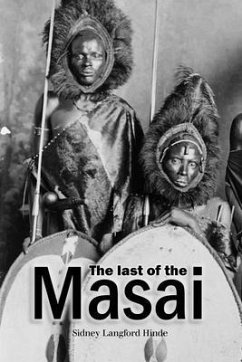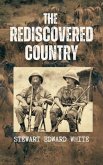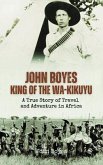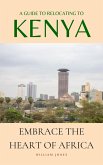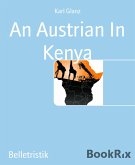"Most of my information about these Masai comes from captain Sidney Langford Hinde the famous explorer and lion hunter...he lived with the Masai...and made a study of them." -El Paso Herald, Feb. 29, 1908
"The Masai are singularly fair fighting men, depending rather upon the unconquerable valour of each individual warrior than upon overwhelming their foes by mere force of numbers." - The Saturday Review
In 1895 the Imperial Government took over the administration of British East Africa; the company ceased to exist, and subsequently Sidney Langford Hinde (1863 - 1930) became Resident and Collector of Masailand. He had many opportunities of obtaining information concerning this unique and interesting people, and, assisted by Mrs. Hinde, has embodied the results of his gleanings in the present volume, his book 1901 book "The last of the Masai."
The Masai are singularly fair fighting men, depending rather upon the unconquerable valour of each individual warrior than upon overwhelming their foes by mere force of numbers. In their old raiding days, when they swept vast districts, earring off thousands of head of cattle in a single foray, "they never went more than a hundred strong and usually numbered only thirty, forty, or fifty. This small force of warriors was sufficient to fight and defeat the superior numbers of other natives".
The prestige of the Masai as a fighting race must have been great indeed. These strange people have various chivalrous attributes, which distinguish them from all other Africans. They invariably send notice to their adversaries that they are about to attack them; they spare their prisoners; and there is no such thing among them as treachery or stabbing behind. Their tribal battles are a series of duels, man to man, and they fight to the death. The women, knowing that they are perfectly safe, encourage their menkind with shrill cries.
In introducing his book Hinde notes:
"The rebellion at the coast, under M'Baruk, rendered it impossible to furnish the Sub-Commissioner of the district with the necessary police or troops, and his own police force on a peace footing was absolutely inadequate to deal with the disturbances, or to punish the armed bands who had been causing so much trouble. It was, therefore, decided to invite the Masai under our protection to assist the Government police. To this they made immediate response, and with a thousand Masai to scout and guard the flanks, an expedition shortly reduced the surrounding country to submission.
"A few months later, when a military company was stationed at Machakos, the rebels further afield were subdued by a combined military and police force, assisted by over a thousand Masai warriors. On these two occasions I worked with and amongst the Masai, and was greatly impressed by their fine physique, manly bearing and response to discipline; and when later I was appointed Resident to the Masai chief and Collector of Masailand, the opportunity of becoming acquainted with the life of this interesting people presented itself."
About the author:
Sidney Langford Hinde was born July 23, 1863 and died October 18, 1930. He was Medical Officer of the Interior, British East Africa; Late Captain, Congo Free State Forces; was a military medical officer involved in colonial operations in the Congo and East Africa in the 19th century. Hinde was credited with aiding the overthrow of the infamous African slave trader Tippu Tip, and his successor, Sefu. Later he became the subcomissioner of British East Africa. He spent time living with the Masai who were the subject of a study by him.
Other books by Hinde include:
The Fall of the Congo Arabs (1897)
"The Masai are singularly fair fighting men, depending rather upon the unconquerable valour of each individual warrior than upon overwhelming their foes by mere force of numbers." - The Saturday Review
In 1895 the Imperial Government took over the administration of British East Africa; the company ceased to exist, and subsequently Sidney Langford Hinde (1863 - 1930) became Resident and Collector of Masailand. He had many opportunities of obtaining information concerning this unique and interesting people, and, assisted by Mrs. Hinde, has embodied the results of his gleanings in the present volume, his book 1901 book "The last of the Masai."
The Masai are singularly fair fighting men, depending rather upon the unconquerable valour of each individual warrior than upon overwhelming their foes by mere force of numbers. In their old raiding days, when they swept vast districts, earring off thousands of head of cattle in a single foray, "they never went more than a hundred strong and usually numbered only thirty, forty, or fifty. This small force of warriors was sufficient to fight and defeat the superior numbers of other natives".
The prestige of the Masai as a fighting race must have been great indeed. These strange people have various chivalrous attributes, which distinguish them from all other Africans. They invariably send notice to their adversaries that they are about to attack them; they spare their prisoners; and there is no such thing among them as treachery or stabbing behind. Their tribal battles are a series of duels, man to man, and they fight to the death. The women, knowing that they are perfectly safe, encourage their menkind with shrill cries.
In introducing his book Hinde notes:
"The rebellion at the coast, under M'Baruk, rendered it impossible to furnish the Sub-Commissioner of the district with the necessary police or troops, and his own police force on a peace footing was absolutely inadequate to deal with the disturbances, or to punish the armed bands who had been causing so much trouble. It was, therefore, decided to invite the Masai under our protection to assist the Government police. To this they made immediate response, and with a thousand Masai to scout and guard the flanks, an expedition shortly reduced the surrounding country to submission.
"A few months later, when a military company was stationed at Machakos, the rebels further afield were subdued by a combined military and police force, assisted by over a thousand Masai warriors. On these two occasions I worked with and amongst the Masai, and was greatly impressed by their fine physique, manly bearing and response to discipline; and when later I was appointed Resident to the Masai chief and Collector of Masailand, the opportunity of becoming acquainted with the life of this interesting people presented itself."
About the author:
Sidney Langford Hinde was born July 23, 1863 and died October 18, 1930. He was Medical Officer of the Interior, British East Africa; Late Captain, Congo Free State Forces; was a military medical officer involved in colonial operations in the Congo and East Africa in the 19th century. Hinde was credited with aiding the overthrow of the infamous African slave trader Tippu Tip, and his successor, Sefu. Later he became the subcomissioner of British East Africa. He spent time living with the Masai who were the subject of a study by him.
Other books by Hinde include:
The Fall of the Congo Arabs (1897)
Dieser Download kann aus rechtlichen Gründen nur mit Rechnungsadresse in A, D ausgeliefert werden.

